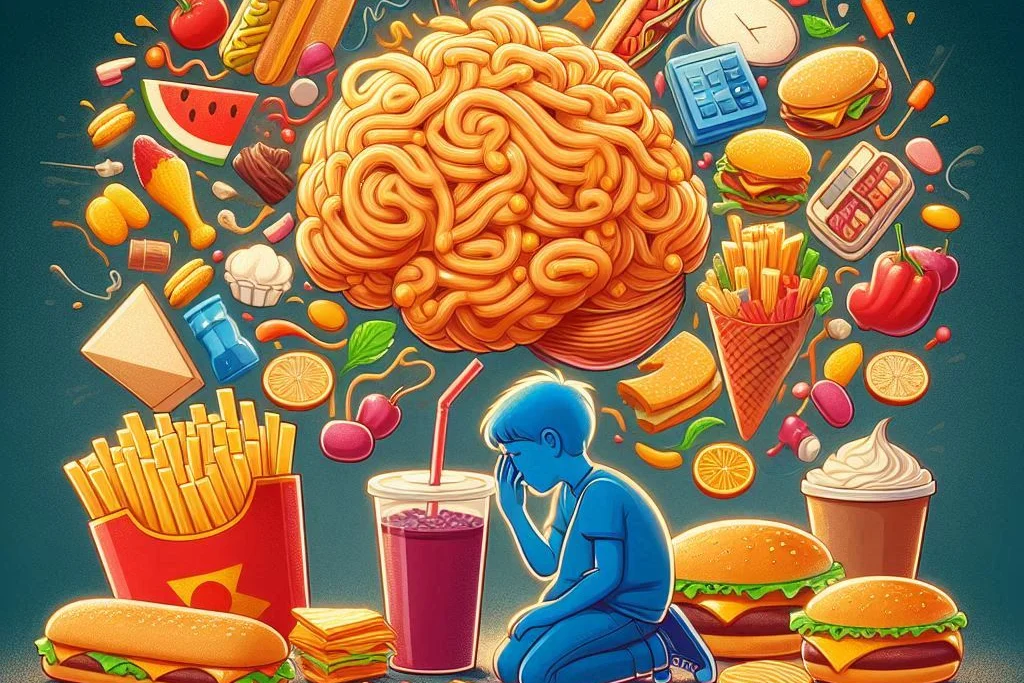Junk Food in Youth Linked to Lasting Memory Loss, Study Finds
Could early junk food habits harm memory for life? Explore how teen diets may cause lasting brain changes—read the full article now!

A study published in the Brain, Behavior, and Immunity revealed that adolescent exposure to a high-fat, high-sugar diet resulted in persistent memory impairment in rats.
Conducted by researchers at USC, the study explored how diets resembling the Western-style pattern—rich in fats and sugars—can influence memory. Findings indicated that memory deficits developed during adolescence remained into adulthood, even after a return to a healthier dietary pattern.
Lasting Memory Impairments Linked to Adolescent Junk Food Diets
As stated by a professor involved in the research,
“What we see not just in this paper, but in some of our other recent work, is that if these rats grew up on this junk food diet, then they have these memory impairments that don’t go away. If you just simply put them on a healthy diet, these effects unfortunately last well into adulthood.”
The investigation also focused on acetylcholine, a neurotransmitter vital for memory, learning, and attention. Lower levels of this compound have been associated with Alzheimer’s disease. Previous studies have drawn connections between poor dietary habits and a decline in acetylcholine, prompting the team to examine whether similar effects could occur in developing brains subjected to a poor diet.
Through memory testing and biochemical analysis, the research highlighted the potential long-term impact of adolescent nutrition on cognitive function.
Adolescent Junk Food Diet Found to Disrupt Memory Signals in the Brain
In a controlled experiment, acetylcholine levels were monitored in rats exposed to a diet high in fat and sugar, compared to those maintained on a standard diet. Memory was assessed using an object recognition task, where rats were later reintroduced to a familiar setting with one new object added. Results showed that rats fed the junk food diet failed to recognize previously seen objects, suggesting impaired memory. In contrast, those on the control diet demonstrated familiarity with the objects and locations.

“Acetylcholine signaling is a mechanism to help them encode and remember those events, analogous to ‘episodic memory’ in humans that allows us to remember events from our past,” explained lead author Hayes. “That signal appears to not be happening in the animals that grew up eating the fatty, sugary diet.”
Post-mortem brain analysis confirmed disruptions in acetylcholine levels among rats on the unhealthy diet. This neurotransmitter plays a key role in memory formation and is known to be deficient in conditions such as Alzheimer’s disease.
Adolescence was described by the researchers as a critical window for brain development. As noted in the study,
“Unfortunately, some things that may be more easily reversible during adulthood are less reversible when they are occurring during childhood.”
A potential solution was tested in a follow-up phase of the research. Two drugs—PNU-282987 and carbachol—were administered directly to the hippocampus, a brain region essential for memory. When this treatment was applied, memory function in the affected rats was restored.
Further research will be needed to understand how, without pharmaceutical assistance, the cognitive effects of early-life poor dietary habits might be improved.
https://doi.org/10.1016/j.bbi.2024.03.015
Summary
Early-life consumption of a Western diet (WD), high in fat and sugar, has been linked to long-term memory impairments, especially those dependent on the hippocampus (HPC). In a rodent study, rats were fed either a cafeteria-style WD or standard chow during juvenile and adolescent stages. Even after switching to a healthy diet in adulthood, rats previously exposed to the WD showed persistent hippocampal-dependent memory deficits.
Further analysis revealed reduced levels of a key protein involved in acetylcholine (ACh) transport in the hippocampus, indicating decreased ACh signaling. Real-time brain monitoring showed that ACh release during memory tasks was diminished in WD-fed rats and closely tied to impaired performance. However, memory function was restored when an ACh receptor agonist was directly infused into the hippocampus.
These findings identify disrupted hippocampal ACh signaling as a lasting effect of early WD exposure and a potential mechanism for diet-related memory impairments.
